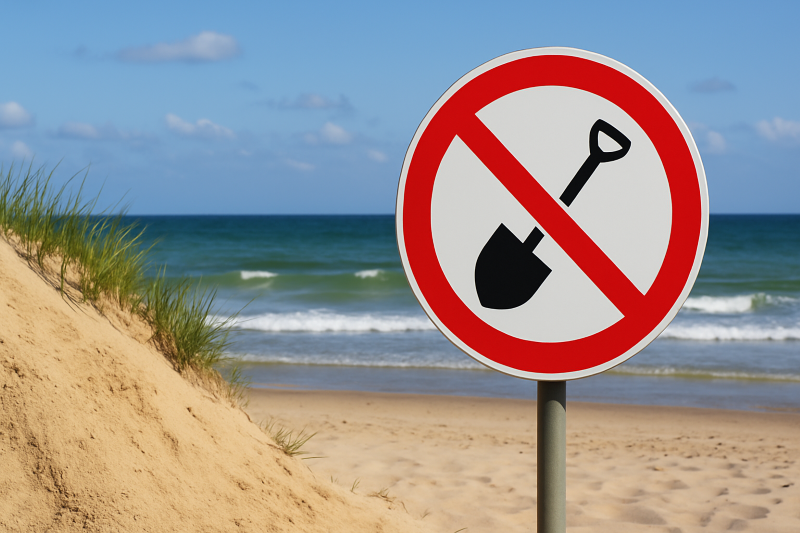
If you’ve ever walked along the Texas coast and wondered whether it’s legal to scoop up a bit of beach sand for a backyard project or even contemplated rolling up in a truck to load up for construction you’re not alone. The short answer is: no, it’s not legal. Texas law is quite clear and strict when it comes to the removal of sand, particularly from areas near the Gulf Coast.
The Law Protecting Texas Dunes
Texas has implemented specific legal protections for its coastal sand dunes under the Dune Protection Act, formally cited as Texas Natural Resources Code § 63.091. According to this law, no person may damage, destroy, or remove a sand dune or any portion of a dune located seaward of the dune protection line without proper authorization. This includes all activities within 1,000 feet of the mean high tide line of the Gulf of Mexico.
In layman’s terms, if you're at the beach and think you might just fill a few buckets of sand for a landscaping project think again. Unless you’ve secured a valid permit from the appropriate coastal authorities, it’s illegal to remove sand from these protected zones. This law is designed not for beachgoers building sandcastles but rather to prevent commercial exploitation and environmental damage by large-scale operations such as housing developers.
Understanding the "Mean High Tide" and Dune Protection Line
The mean high tide line is essentially the average line on the shore reached by high tides over a period of time. From that line, extending 1,000 feet inland, is considered a protected zone. Within this buffer, sand dunes are off-limits for unauthorized removal. The dune protection line can vary by location and is designated to ensure critical dunes are preserved, as they play a vital role in protecting inland areas from storm surge and erosion.
Final Word: Don’t Bring a Shovel to the Shore
The idea of helping yourself to beach sand might seem harmless, especially for a small DIY project. But in Texas, the coastal ecosystem and its protective dunes are under the watchful eye of state laws.
All information provided on Silblawfirm.com (hereinafter "website") is provided for informational purposes only, and is not intended to be used for legal advice. Users of this website should not take any actions or refrain from taking any actions based upon content or information on this website. Users of this site should contact a licensed Texas attorney for a full and complete review of their legal issues.
